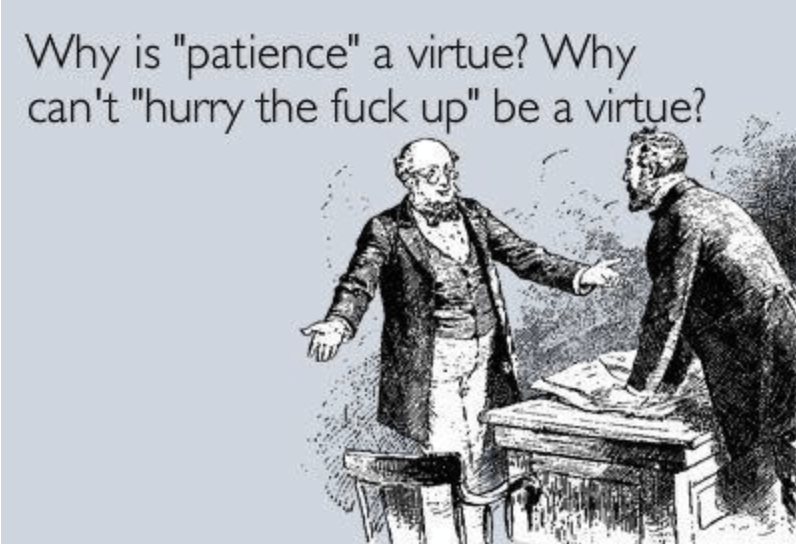
How to Deal with Rejection – Compatibility and Chemistry
By Marcus Neo | Relationships
No matter how much charisma you think you have, or how you alter your behavior, a good portion of people you meet isn’t going to be interested or available at that point of time. Unfortunately, there are ton’s of dating and relationship advice out there that sells you a foolproof technique to get around dealing with rejection. Unfortunately, that’s just marketing. It doesn’t happen in real life.
It’s no surprise that the person who fails or get rejected the most often gets the most results as well. This doesn’t happen by chance. To get good at rejection, is to simply reframe your lenses on being rejected: your job is to get to the point whether someone either is going to move forward with us or not, in the shortest time possible. Instead of seeing a rejection as a negative, you can view it as a time saver. To save you hours, days and years of time sink.

How to Deal with Rejection
Mr Lee Kuan Yew, the first Prime Minister of Singapore, a revered politician, stated that he thought love at first sight is foolish. He also famously defied Asian traditional by marrying a girl who is smarter or more successful than he is. He married his academic competitor, who topped his cohort, beating him to second place when he was studying at Raffles College. What Mr Lee Kuan Yew was gunning for was the filter of relationship compatibility.
You and I spend our time painting ourselves as social chameleons, attempting to make the best pitch to just about any human being with a pair of legs. Hoping, praying and begging that they accept the pitch without questioning if they are the right dance mate for us. You spend all your time worrying about the person across you without thinking if he or she is compatible to us.
Compatibility and chemistry are concepts left out by majority of dating and relationship advice. Not because they aren’t important, but because these are concepts can’t be scripted or changed.
Chemistry
Studies that show that people are attracted to the emotional make up of their parents. It’s suggested you can’t differ the love you once received from your parents with the love you are receiving from your partner.
Chemistry is defined by a high degree of sexual and emotional attraction. It happens on a subtle level and felt immediately by both parties equally.
Chemistry is the warm fuzzy feelings you feel when you’re around him/her. It is when you can’t get enough of him or her. The whispering of sweet nothings, the constant need to be with and see one another. They monopolize your thoughts day and night. You find yourself irrationally organizing your scheduling around them. You find yourself wanting to share with them every bit about your daily occurrences.
Ever went through a roller coaster type relationship where you’re hitting new lows and chasing new highs every couple of weeks?
That’s chemistry going awry.
There’s research suggesting high levels of chemistry may come from opposite yet complimentary traits. Introverts usually have a high chemistry with extroverts. People who are orderly and organized may work best with people who are spontaneous and unorganised. Someone who is laid back with a wider perspective may be complimentary with someone who keeps a tight schedule and routine.
On the other hand when there’s a lack of chemistry, there’s a lack of emotional intensity. There’s basically a lack of mutual attraction. There’s no spark and desire to jump on each other. There’s no long stares in each other eyes, no sexual tension, no rationalising that she’s an angel that descended from the heavens to save you.
Chemistry can be a psychological bias. This biases may work against you. You may feel great in a relationship but aren’t inherently compatible for each other.
Compatibility
Compatibility is an intellectual construct on how well your lifestyle and world-views fit together. You can have high levels of chemistry with someone, but poor compatibility. That’s when your lifestyles and values differ. In the long run, the relationship is most likely going to fall apart. Compatibility is key to long term relationships.
Compatibility and chemistry don’t always occur together. This is the law school professor dating a stripper. This is the rock singer in a band dating a hard-core Christian girl who goes to church every Sunday morning while he’s recovering from a hangover from the previous night’s gig.
Some questions to ask yourself are:
- What do you want in a partner?
- What are the feelings you expect to feel when you’re with them, how do they perceive the world?
- Their goals in life and what they expect out of it?
You can have the best conversational skills in the world… however, at any one point of time there is going to be a large pool of partners that aren’t going to be attracted to you. And then there’s going to be a pool of partners that are attracted to you, who aren’t going to end with you because of their current life situation. This is a case of chemistry but mis compatibility.
Compatibility is also also prerequisite I look for in a long term, committed relationship. I mean, my mental health is at stake here right?
Navigating Compatibility and Chemistry
In dating, a high compatibility but lack of chemistry is akin to dating someone who looks good on paper but is dry and boring. Having compatibility without chemistry is akin to ticking the boxes on someone’s dating resume because of X, Y, Z. When you are together it feels like you’re doing it because it makes ‘sense’. Sadly, this sort of arrangement happens a lot.
Chemistry without compatibility on the other hand, may lead to roller coaster relationships that entails a lot of drama. It’s the person you know that is bad for you but can’t stop seeing. These relationships often begin quickly and passionately. You find yourself rationalising away the fact that she has a track record of drugs. This is your friends stare at your haplessly after dishing out the same repeated advice. To their wits end, you choose to continually act against their advice. After all, love conquers all right?
You can’t have one without another. You need both chemistry and compatibility for a fulfilling, passionate long term relationship.
Ultimately, you shouldn’t choose to be with someone in the long run just because the sex and/or emotions are amazing, you should choose to be with someone because you have similar life values and world views. You also shouldn’t cut yourself short by being with somebody just because she or he looks great on paper.

How to Reframe Rejection: Incompatibility
Some times my clients ask me what should they do when people flake on them on dates. Should they chase them? Come up with a fancy text message to get their attention? Personally, I made a personal value of not dating/ associating with anyone who doesn’t value my time. The girls that flakes on me immediately become incompatible. If you’ve drawn the line of not going out with people who don’t value you or your time, then you’ll no longer need to play the chasing game.
- Life Circumstances
In my experience, there is a percentage of times (assuming you’re a well rounded individual) you get rejected not because you did something creepy or obnoxious, but because of life circumstances.
There are many external factors that prevent someone from moving things forward romantically or sexually with you at any given point of time.
External factors can range from being already attached, the number of days you have left within the city, her cat dying, her friend’s opinions on how you look like the ex-boyfriend that cheated on her. This is when you are conversing with someone who looks at your longingly and deep into your eyes but holds back giving you her number. She probably has a boyfriend or a husband.
These are factors that you can’t control.
These are perfect examples of the limitations of attraction and how most men and women at any given time won’t be available to you no matter what you do or say. There’s nothing you can do when if you’re out with a someone that has sworn off sex till marriage. It’s not about your ability to be charismatic anymore. It’s not about ‘persuasion’ anymore. No expert, line or ‘frame’ can help you. It’s a simple incompatibility.
It’s only when you reframe rejection and invite rejection by exposing your values. You cut out the mind games, assert your needs, desires and clearly establish boundaries. You do not waste time and move your relationship forward efficiently.
No matter how much you alter your behaviour, you’re going to reject a certain demographic of romantic partners. There’s no other way around it. The bolder and polarizing you become, the more people you’re going to attract and reject. Psychological research also backs this up, people of similar self esteem end up dating each other.

- Psychological Projection
Projection occurs when someone projects one’s own unconscious insecurities onto others.
This can come in the form of character judgments. In dating and relationships, it can occur when you meet partners who for whatever reasons, are uncomfortable with their own sexuality and they lash out at you for having attempted to move the interaction forward sexually.
These people may harbour trust issues or are completely uncomfortable with their own sexuality or the sexuality of the opposite sex. They may have a history of some sort of emotional, sexual abuse or had a string of disappointments or anger from the opposite sex.
Their belief systems on sexuality are negative and when confronted when with a sexually confident individual, they end up lashing out. They may accuse you of being demanding, sexist, overbearing, horny, untrustworthy and etc. They aren’t lashing out for a lack of attraction, but because they are attracted and that attraction scares them.
These accusations usually have little to no connection to reality and a truly confident individual will simply ignore them. The more forthright and polarizing you become, the more polarizing response you’ll invite from others.
Redefining Rejection and Success
How do you define yourself as someone successful in one’s dating life? By having three romantic partners at a go? By committing to one partner? Who’s more successful? The guy who dates 10 strippers at one go or the guy who commits to a long term relationship with one girl who he truly enjoys being with.
It’s easy to get sidetracked into the ego boost or validation. After all these years, I’m still amazed at how poorly I choose my romantic partners at times, after all, our minds are prone biases and errors.
Take the average guy improves this area of his life by learning social skillsets. Not before long, he understands that dating and romantic relationships can be generated through his own actions and it’s not something that’s left to luck or fate.
“Self-development” is working out for him.
Through his newfound social skills, he goes around pursuing women who he isn’t genuinely interested in but for the sake of bragging rights. Is it an improvement after all right? He went from zero dates to many dates. He might not even really be into these women on these dates.
Unfortunately, this is a failure in itself. Even though he went from no dates to dates with girls that he feels “meh’ about. He’s still avoiding feeling vulnerable and at risk of being rejected by women that he’s genuinely interested in. The avoidance of this feeling is a failure it itself.
“It’s better to fail on a date with a potential partner you desire, than to sleep with someone you don’t enjoy being around with.”
– Marcus Neo
You and I have both intrinsic and extrinsic motivators when it comes to our dating and relationship lives. External motivators such as physical beauty cannot be the only metrics of success. In the long run, internal values such as respect, trust and empathy make healthy and meaningful relationships. Even though I value physical beauty, it is not the only metric that I hold in my dating life.
This is why it’s important to define your own metrics of success in dating and relationships, not some arbitrary metric defined by society or other ideologies.
The Power of Demographics – How to Get Rejected Less
Contrary to common belief, dating and relationships aren’t solely a numbers game. You CAN optimize your approach. You can narrow down your ideal partner.

Firstly, you can control the quality of people you converse with. Secondly, you can control how you dress, conversations and how you present yourself. In general, the more empathetic you are, the more varied the demographics of partners you’ll be able to connect with. This is especially useful in Singapore, where you are exposed to a mixture of Asian and Western demographics with different value systems.
If you’re a hot shot engineer who is brilliant with physics and you want to date beautiful women, let’s just agree that a lot of them aren’t spending their time in libraries attempting to understand intricate systems. However, if you make the effort to cultivate a fashion sense, get competent at the ability to meet women in different demographics, you’ll have an advantage by being unique.
You can get closer to meeting your ideal partner by niching down the physical and personality traits of your ideal partner, finding her demographics, and putting yourself in front of social opportunities that’ll increase your chances of meeting someone similar.
Here are questions to ask yourself:
- What do you value in a partner? What personality traits and values are you looking for?
- How does you ideal partner looks like? The way they dress to their education level?
- How can you put yourself in demographics to meet someone that fits the image of your ideal partner?
- How you can develop social skillsets so you can start a conversation he or she in that demographic?
You’re not going attract everyone one that comes you way. If you behave in a certain manner, you’re going to reject other demographics. That’s just life. On the other hand, if you attempt to be accepted by everyone, you’ll find yourself altering your identity and personality day after day, ultimately attracting nobody.
The more well read I become, the more I reject women (and people) who don’t read or aren’t interested in personal growth. I also can’t get along with women who aren’t capable of communicating on a deeper level: normally those that are solely focused on looking good on Instagram. Going on dates with them is an equivalent of social waterboarding.
Whilst I can force myself to lower my standards (and have done so), it’s no surprise that I find myself more compatible with girls who value intellectual curiosity.
The key here is finding overlapping values. If I am somewhat a nerd and enjoy reading up on psychology she enjoys debating human right issues. That’s an overlapping value.
The Art of Presenting Your Ideal Self
The majority of us share one common experience of obsessing over this one girl or guy at work or school. You probably find yourself not daring to ask him or her out… and it has been months. You start dreaming of a perfect scene… you and them walking down the wedding aisle and you so desire that ONE person as your boyfriend or girlfriend.
I, like you, and millions out there once spent the good part of my teenage life fantasising over ONE partner. Taking months to speak to her, and then taking years to ask her out.
The better way to tackle this is not to obsess over one partner but to constantly present your ideal self. It is to constantly focus on becoming the ideal version of yourself. That’s where self-improvement comes in. When you focus on presenting the best version of yourself to the world, something that is immediately controllable, when the right person at the right time comes into your life, you’re more than prepared.
When you’re out on a date, instead of worrying if they like you, sit back and evaluate if he or she has the values and traits you’re looking for. This way you relieve pressure on yourself. You get to enjoy your dates and don’t have have a need to impress him or her.

Closing Thoughts
Ayn Rand said love is the expression of one’s values: it’s the emotional price paid by one man for the joy he receives from the virtues of another.
Throughout the years, I find myself compatible with partners that are curious, intelligent and patient. I’m not bragging here or anything. I’m pretty disorganised, impulsive, unstructured and I’m not really good dealing with authority. I can be quite blunt and forthright. Some times I say things that I don’t mean. For Eg: I like making fun of overweight life coaches and authority figures that take themselves too seriously. If she’s too caught up with me spouting unintended stuff instead of laughing it off, then needless to say we’re not going to get along.
Opposite qualities of being structured, detail oriented compliments mine. I find myself seeking out longer term relationships with partners who are working in fields that are making a contribution in some sort meaningful way. They can be doctors, nurses, physiotherapists and social workers. They also aren’t limited to the medical or scientific fields. She could be running a business to better the agriculture system of a third world country and I’ll find myself admiring the novelty behind it.
I can’t date women whose main concerns are taking a hundred selfies a day and overly concerned about how she looks like on social media. If I get rejected by someone who has an attention span of a goldfish, I don’t perceive it as a rejection, I see it as incompatibility. This is the way I deal with rejection, by viewing it as a simple incompatibility.
Works Cited
Geher, Glenn. “Perceived and Actual Characteristics of Parents and Partners: A Test of a Freudian Model of Mate Selection,” Current Psychology (Fall, 2000), vol. 19, no.3, 194-214.
Markey, P.M.; Markey, C. N. (2007). “Romantic ideals, romantic obtainment, and relationship experiences: The complementarity of interpersonal traits among romantic partners” (PDF). Journal of Social and Personal Relationships. 24 (4): 517–533.








